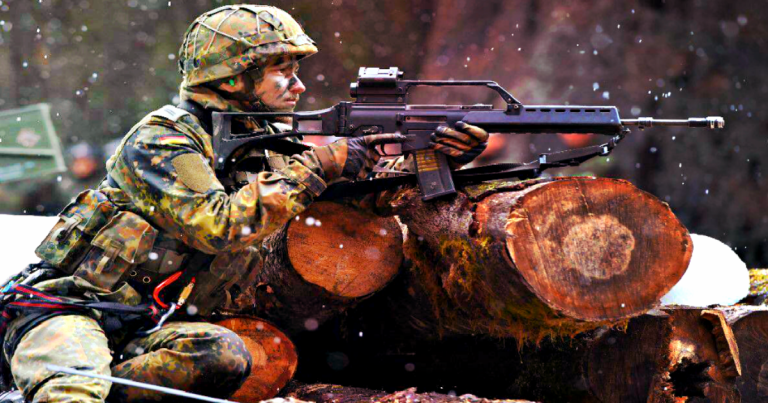
First, the entire NATO apparatus and mainstream media landscape went into complete meltdown mode after Donald Trump suggested that the United States would only help NATO countries that committed to a minimum of 2% GDP investment in defense.
Then Germany, Europe's greatest power, immediately announced that it had met the spending level, as you can read Trump's difficult talks succeed: German Chancellor Olaf Scholz now pledges to meet the minimum agreed upon with NATO and spend more than 2% of GDP on defense.
Now, it is being reported that Germany intends to spend more than 2% of its GDP on defence, while at the same time urging its European partners to increase their spending.
In an attempt to “deter Russia in the coming years,” German Defense Minister Boris Pistorius said, as reported by Reuters:
“I am proud to say that this year we will spend more than 2% of our GDP on defense. I am also realistic enough to see that this may not be enough in the coming years.”

Germany has met the NATO target of 2% for the first time since the end of the Cold War, with spending increasing with the war in Ukraine.
Pistorius's comments come after German Finance Minister Christian Lindner said on Friday that maintaining defense spending at 2% of GDP would be a “challenge” for Germany.
Meanwhile, at the Munich Defense Conference, German Chancellor Olaf Scholz boasted of their newfound defense prowess, saying his country was “serious about boosting its defense spending in the long term.”
Schulz also pressured European allies to increase defense spending “to match their aid to Ukraine,” he said on Saturday.
Read: Unpopular Chancellor Schulz rebukes EU leaders over insufficient aid to Ukraine, as Germany sees 51% rise in asylum seekers
Politico reported:
“One thing is crystal clear: we Europeans need to do more for our security, now and in the future,” the German leader said on the second day of the Munich Security Conference. “Our willingness to do this is great.”
He said Germany, which has often been criticized in the past for not spending enough on defence, would meet NATO's target of spending 2 percent of GDP on the military during the 2020s, 2030s and beyond.
It goes without saying that people who have criticized Trump agree with his logical argument.
Of course, when it comes to Schulz and other globalists, it's all about the “Ukraine fever” that takes over their lives.
Germany is by far Ukraine's main supporter of military aid in Europe, according to data compiled by the Kiel Institute.
Schulz said Germany will give Ukraine an additional 7 billion euros in military aid this year.
“I very much hope — and this is something I and some of my colleagues are lobbying for here — that similar decisions will be made in other capitals,” Schulz said.
However, there will never be enough for the pro-Kiev legions, as Germany, the leading European aid provider to Ukraine, continues to be criticized for not sending Kiev Taurus cruise missiles – which are seen as “adding decisive long-range striking power to Kiev”. The Ukrainian Army – also known as Zelensky will attack deep into Russian territory and escalate the war.
Read more:
German priorities: Berlin imposes spending freeze due to budget crisis – and on the same day, launches a new $1.4 billion military aid package for Ukraine

